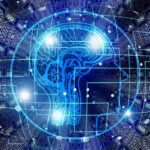On August 2, 1939, Albert Einstein, the equivalent of scientific genius, endorsed a letter drafted for him by a fellow physicist and inventor, Leo Spitz Szilard. The letter was despatched to the United States President, Franklin Delano Roosevelt. In the said letter, Einstein explained to Roosevelt the prospects of utilising uranium to produce a chain reaction that could lead to the construction of “extremely powerful bombs”.
This memorable letter paved the way for the Manhattan Project, in which a collection of scientists, constructed atomic bombs. Six years later, in 1945, two bombs, Little Man and Fat Boy were dropped on Hiroshima and Nagasaki, in Japan. Even though these bombs quickened the end of World War II, they nonetheless caused such deaths and mayhem as to make a traumatised Einstein to rue the day he signed that letter.
In a 1947, Newsweek article entitled:” The Man Who Started It All”, Einstein had regretted: “Had I known that the Germans would not succeed in producing an atomic bomb, I would never have lifted a finger”.
It appears we are at the cusp of another historic moment, a moment the pundits are wagering will usher in the equivalent of the “printing press moment”. The printing press moment followed hot on the heels of the printing of the first Bible by Johannes Gutenberg in the 1450s. Technology experts led by the acclaimed Godfather of Artificial Intelligence (AI), Geoffrey Hinton, are warning us that though AI has huge potentials and benefits and that these will impact massively and comprehensively on our lives, it has downsides which can affect mankind adversely. They appear determined to avert the kind of heart-rending mea culpa or apology which Einstein offered. They are doing so by calling, stridently for urgent rules and regulations to underpin the use of AI.
The high point of this campaign was the Public Hearing on the place of AI held by the American Congress last week. The hearing was addressed by such experts as Sam Altman, the Chief Executive Officer (CEO) of ChatGPT; Christina Montgomery, Vice President of IBM; and Gary Marcus, a former professor at New York University.
One of the dangers AI could pose was immediately underscored by the opening remarks of Senator Richard Blumenthal (of Connecticut) at the Hearing. Senator Blumenthalis the Chairman of the Senate Committee on Privacy, Technology and Law. His audio remark was an AI-generated recording that sounded just like his own voice. And it was generated by AI Chatbot, ChatGPT, whose company is led by Sam Altman, the lead presenter in the Public Hearing!
Altman was clear and unmistaken about the need to urgently regulate the AI industry in its inchoate and embryonic stage. For apart from AI’s capacity to impersonate with fidelity, it has the capacity to misinform in equal measure.
At a voluble age when humanity is awash with Social Media fare and content, which are neither regulated nor governed by professional or ethical concerns, AI, if not quickly and rigorously regulated, could imperil mankind. It can upend civilization as we know it. Voices of leaders who have access to nuclear weapons codes or who make crucial decisions that affect millions of people could be copied and instantaneously deployed with devastating consequences.
Information could easily be distorted to meet a pre-conceived and sinister agenda. Misinformation can be deployed on social media platforms which could have deleterious effects before they are reversed or checked. Incalculable damage could be visited by such content, which would have gone viral and subscribed to, lock, stock and barrel, by a large population.
Perhaps worse are the dire warnings issued by Hinton and Marcus. Professor Marcus had warned: “There are more genies to come from more bottles. If you are going to introduce something to 100 million people, somebody has to have eyeballs on it.”
If Professor Marcus comes across as cryptic, let me explain: With robotics and nana technology in place, all scientists need to do is implant artificial intelligence in soulless robots. Pronto, these robots, lacking compassion or fellow feeling, can wreak havoc, including on the same humans that invented them. It is feared that in due course, these robots will attempt to supplant humans and bring to bear a reign of terror or drive us to the brink of apocalypse.
It is also feared that AI has already reached a station where it can manipulate the conduct of elections and their outcomes. Significant elections impending, such as the US and Indian Parliamentary elections, scheduled for 2024 are said to be in the cross hairs of AI. It is said to have the capacity to visit mayhem on them.
Artificial Intelligence also has implications for jobs and the workplace. Like robots and drones before them, AI could make life bearable and seamless. It could do dangerous things which humans cannot dare. It could make life easier and expand the frontiers of health. It could address the scourge of cancer or the challenge of climate change. But it could also render man indolent and redundant as well.
Workers will need to be educated and re-trained on a vast scale to co-mingle and co-exist with AI. This will require a muscular and massive partnership between the private sector and the government.
Though the technology community and the United States Congress have taken the first tentative step to address the inevitable growth of AI, it is concerning that this effort is being consigned to the United States only. Other global platforms and powerful nations must demonstrate similar concerns. These concerns should in turn lead to, or result in the kind of global collaboration humanity has shown in space exploration and nuclear power.
To accomplish this, protocols must be established on the use of AI, especially as it concerns warfare. A new rapprochement must be initiated to carry along such technologically advanced powers as Russia, China and Europe.
The developing countries, which are always at the receiving end of the excesses of the powerful countries, must show more than a casual interest. They must key in and invest hugely in this technology. They must create the environment for their scholars and technicians to acquire this technology, as soon as possible, and to deploy it to extricate themselves from poverty and disease.
Nick Dazang is a former Director at the Independent National Electoral Commission (INEC)

 Join Daily Trust WhatsApp Community For Quick Access To News and Happenings Around You.
Join Daily Trust WhatsApp Community For Quick Access To News and Happenings Around You.


